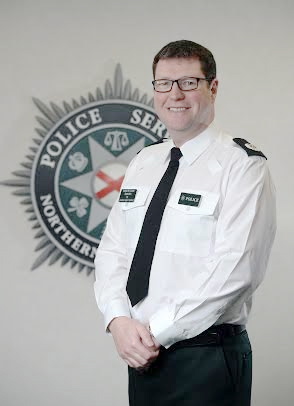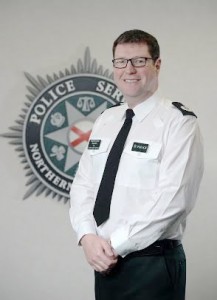Plans for the Police Service of Northern Ireland’s new model of frontline policing to continue Keeping People Safe by using resources in the most efficient and effective way possible are progressing, the PSNI has said.
The organisation said that the exact structure is still being determined, however current Response Teams will no longer exist and instead there will be 25 Local Policing Teams (LPTs) – with an additional small LPT in Crossmaglen. These will be supported by 34Neighbourhood Policing Teams (NPTs) to deal with issues in areas with higher levels of crime and deprivation, as well as in places of rural isolation.
Assistant Chief Constable Stephen Martin, who is responsible for District Policing, said: “In the Derry City and Strabane council area there will be two Local Policing Teams (LPTs) based at Strabane and Strand Road stations providing 24 hour cover.
“The LPTs are an exciting development – they will not just attend calls, but will develop a greater sense of ownership of the area and the problems within it. They will build up an enhanced knowledge through engagement with community representatives, local clergy, principals of schools and other key figures. The LPTs will be continue to deliver core policing on a daily basis, as well as find solutions to problems in a much more Policing with the Community style than the previous response teams.
“We have undertaken a significant amount of work to look at what parts of Northern Ireland would benefit most from an additional Neighbourhood Policing Team. They will provide a dedicated extra policing presence, reassurance and commitment to communities where it is most needed.
“The Derry City and Strabane District will have four Neighbourhood Policing Teams, two based at Strand Road, one at Waterside and one at Strabane, which will be mobile and deployed to areas to deal with critical issues.”
Meanwhile, Limavady, which is to be part of the Causeway Coast and Glens District, will have a Local Policing Team based in the town.
Magherafelt, which is to be part of the Mid Ulster District, will have an NPT and an LPT.
ACC Martin added: “The changes to frontline policing are as a result a requirement to align with new Council structures by April 1, as well as the severe, ongoing budget cuts facing the PSNI and decreasing resources. It will take up to six months to have the new model fully in place, during which time the new LPTs and NPTs will begin functioning.
“There is still much work to be done around the detail of team sizes, shift patterns and job descriptions, to name but a few challenges and these decisions will be made over time.
“On April 1st we will move from the existing seven policing Districts to 11, but we need to do this while facing the reality that with less money and fewer officers we cannot simply replicate our existing District structures. The new 11 Districts, while leaner and more streamlined, will continue to focus on local priorities. Area co-ordinating tiers will provide support and additional resources to help deal with those priorities and emerging threat, risk and harm issues.
“This year we had to cut over £38m from our budget and next year’s reductions will also be in the region of £40m. The Chief Constable has clearly said that policing will be ‘unrecognisable’ and I would urge the public to understand that there must be changes in the way that policing services are delivered as we continue to restructure. The impact of the budget cuts will not be felt on District policing alone; it will be right across the full spectrum of policing.
“We have also launched a review of our police stations and other estate so that they align with our new policing model and will update the community when this is complete. The reality is that nearly all policing services are delivered outside of stations. Policing isn’t about buildings, it is about officers working with the community in the community. Indeed, we recently reduced the opening hours at local stations and this has not led to a reduction in the level of service delivered. Policing remains a 24 hours, seven days a week operation and we can be contacted on 999 in the case of an emergency or on 101 at other times.
“Fewer people are visiting or using police stations, and officers are now engaging with their local communities in a variety of ways – from online reporting of non-emergency and hate crime, to interacting with local police on our local Facebook pages and Twitter feeds.
“Policing is changing, but our policing purpose remains the same – keeping people safe is still our main priority and we will continue to do this by preventing harm, protecting the vulnerable and detecting offenders. The public will continue to see police on a daily basis as officers will be patrolling in vehicles and on foot, carrying out searches and making arrests.”
Tags:







